#she hit the nail on the head
Text
mistki was so fucking real when she made nobody
#like wow!!!! i AM lonely thanks mitski#and no one fucking wants me 👍#she hit the nail on the head#ben talks
3 notes
·
View notes
Text
woah @gracieabrams


#she hit the nail on the head#this song lives rent free baby#augusta#gracie abrams#this is what it feels like
5 notes
·
View notes
Text
Judged purely on style, HBO’s “True Detective” is a great show. Every week, it offers up shiver-inducing cable intoxicants, from an over-the-top action sequence so liquid it rivals a Scorsese flick to piquant scenes of rural degradation, filmed on location in Louisiana, a setting that has become a bit of an HBO specialty. (“Treme” and “True Blood” are also set there.)
Like many critics, I was initially charmed by the show’s anthology structure (eight episodes and out; next season a fresh story) and its witty chronology, which chops and dices a serial-killer investigation, using two time lines. In the nineteen-nineties, two detectives, Marty Hart and Rust Cohle (Woody Harrelson and Matthew McConaughey), hunt down a fetishistic murderer, the sort of artsy bastard who tattoos his female victims, then accessorizes them with antlers and scatters cultish tchotchkes at the crime scene. In the contemporary time line, these ex-partners are questioned by two other cops, who suspect that the murders have begun again. If you share my weakness for shows that shuffle time or have tense interrogations—like the late, great “Homicide” or the better seasons of “Damages”—you might be interested to see these methods combined. The modern interviews become a voice-over, which is layered over flashbacks, and the contrast between words and images reveals that our narrators have been cherry-picking details and, at crucial junctures, flat-out lying. So far, so complex.
On the other hand, you might take a close look at the show’s opening credits, which suggest a simpler tale: one about heroic male outlines and closeups of female asses. The more episodes that go by, the more I’m starting to suspect that those asses tell the real story.
This aspect of “True Detective” (which is written by Nic Pizzolatto and directed by Cary Fukunaga) will be gratingly familiar to anyone who has ever watched a new cable drama get acclaimed as “a dark masterpiece”: the slack-jawed teen prostitutes; the strippers gyrating in the background of police work; the flashes of nudity from the designated put-upon wifey character; and much more nudity from the occasional cameo hussy, like Marty’s mistress, whose rack bounces merrily through Episode 2. Don’t get me wrong: I love a nice bouncy rack. And if a show has something smart to say about sex, bring it on. But, after years of watching “Boardwalk Empire,” “Ray Donovan,” “House of Lies,” and so on, I’ve turned prickly, and tired of trying to be, in the novelist Gillian Flynn’s useful phrase, the Cool Girl: a good sport when something smells like macho nonsense. And, frankly, “True Detective” reeks of the stuff. The series, for all its good looks and its movie-star charisma, isn’t just using dorm-room deep talk as a come-on: it has fallen for its own sales pitch.
To state the obvious: while the male detectives of “True Detective” are avenging women and children, and bro-bonding over “crazy pussy,” every live woman they meet is paper-thin. Wives and sluts and daughters—none with any interior life. Instead of an ensemble, “True Detective” has just two characters, the family-man adulterer Marty, who seems like a real and flawed person (and a reasonably interesting asshole, in Harrelson’s strong performance), and Rust, who is a macho fantasy straight out of Carlos Castaneda. A sinewy weirdo with a tragic past, Rust delivers arias of philosophy, a mash-up of Nietzsche, Lovecraft, and the nihilist horror writer Thomas Ligotti. At first, this buddy pairing seems like a funky dialectic: when Rust rants, Marty rolls his eyes. But, six episodes in, I’ve come to suspect that the show is dead serious about this dude. Rust is a heretic with a heart of gold. He’s our fetish object—the cop who keeps digging when everyone ignores the truth, the action hero who rescues children in the midst of violent chaos, the outsider with painful secrets and harsh truths and nice arms. McConaughey gives an exciting performance (in Grantland, Andy Greenwald aptly called him “a rubber band wrapped tight around a razor blade”), but his rap is premium baloney. And everyone around these cops, male or female, is a dark-drama cliché, from the coked-up dealers and the sinister preachers to that curvy corpse in her antlers. “True Detective” has some tangy dialogue (“You are the Michael Jordan of being a son of a bitch”) and it can whip up an ominous atmosphere, rippling with hints of psychedelia, but these strengths finally dissipate, because it’s so solipsistically focussed on the phony duet.
Meanwhile, Marty’s wife, Maggie—played by Michelle Monaghan, she is the only prominent female character on the show—is an utter nothing-burger, all fuming prettiness with zero insides. Stand her next to any other betrayed wife on television—Mellie, on “Scandal”; or Alicia, on “The Good Wife”; or Cersei, on “Game of Thrones”; or even Claire, on “House of Cards”—and Maggie’s an outline, too. Last week, Maggie finally got her own episode, in which she is interrogated by the cops. She lies to them, with noir composure, as the visuals reveal a predictable twist: Maggie had revenge sex with Rust. That sex is filmed as gasp-worthy, though it lasts thirty seconds. We see Monaghan’s butt, plus the thrusting cheeks of McConaughey. Yet the betrayal has no weight, since the love triangle is missing a side. An earlier sex scene is even more absurd, and features still another slice of strange: a lusty, anal-sex-offering, sext-happy ex-hooker. She seduces Marty with her own philosophical sweet nothings (“There is nothing wrong with the way he made us”), and, since she’s a gorgeous unknown, we get to see her ride Harrelson like a bronco, as ceramic angels and devil dolls look on from the dresser.
I’m certain that, if you’re a fan of the series, this analysis irritates you. It’s no fun to be a killjoy, particularly when people are yelling “Best show ever”; it’s the kind of debate that tends to turn both sides into scolds, each accusing the other of being prudes or suckers. A few months ago, a similar debate erupted about Martin Scorsese’s “The Wolf of Wall Street,” a film that inspired its advocates to rage that those who didn’t “get it” just needed to get laid. There were more nuanced arguments out there, though: in the Times, A. O. Scott argued that, while the film did a fine job sending up the corruption of the grifter Jordan Belfort, there was little distinction, visually, between Belfort’s misogyny and the film’s own display. Cool girl that I am, I didn’t entirely agree: like “True Detective,” “Wolf” unfolds in flashback, through voice-over, but its outrageous images bend and ripple with Belfort’s mania. With the exception of a few shots—like one of a stewardess, whose assault is treated as a joke in a way that made me twitch—the nudity, however nasty, makes sense.
On “True Detective,” however, we’re not watching the distorted testimony of an addict, punctured by flashes of accidental self-revelation. The scenes we see are supposed to be what really happened. And when a mystery show is about disposable female bodies, and the women in it are eye candy, it’s a drag. Whatever the length of the show’s much admired tracking shot (six minutes, uncut!), it feels less hardboiled than softheaded. Which might be O.K. if “True Detective” were dumb fun, but, good God, it’s not: it’s got so much gravitas it could run for President.
It’s possible that my crankiness derives from having watched so many recent, better crime series, telling similar stories, in far more original ways. Most notable were Jane Campion’s soaring “Top of the Lake,” on Sundance, and Allan Cubitt’s nightmare-inducing BBC series “The Fall.” In “Top of the Lake,” Campion jolts the viewer with actual taboo nudity: she films the saggy bodies of middle-aged women, members of a feminist encampment. Then she stitches this subplot, in which she satirizes the cult of self-help victimhood, onto a small-town mystery about sex crimes against teen-age girls, who are filmed with comparative discretion. A moody, pastoral twist on the rape-and-murder genre, Campion’s mini-series torqued viewer expectations, exploring provocative themes about the way that communities agree to treat these crimes as if they were bad dreams. “True Detective”’s hinted-at mystery seems strikingly similar. The difference is that, while “Top of the Lake” is about survivors, “True Detective” is about witnesses. The acts themselves are mere symbols of the universe’s unspeakable horror.
“The Fall” (which is available on Netflix) has even more conventional nudity than “True Detective.” It, too, tells a story about a team of detectives hunting for a rapist-murderer obsessed with symbolism. It features pervy stalker shots, along with sick-making imagery of female corpses, in bondage, photographed as keepsakes. Some critics called the show “misogynistic torture porn”: by turning viewers on, they point out, it takes a rapist’s-eye view. But this imagery has a sharp purpose. The show reveals the murderer immediately, forcing us to see the world through his eyes. Then, episode by episode, it tears that identification apart. Just like Rust Cohle, “The Fall”’s rapist has an elaborate pseudo-intellectual lingo, full of Nietzsche quotes and talk of primal impulses. But an icy female cop, played by Gillian Anderson, sees through him—and, in the finale, she shreds his pretensions with one smart speech. Anderson aside, “The Fall” overflows with complex female characters, and not merely the killer’s victims but their families, the murderer’s wife, his daughter, and his mistress. Beautiful as “The Fall” looks, it’s harder to watch than “True Detective,” because there is a soul inside each body we ogle. When women suffer, their pain isn’t purely decorative.
“True Detective” isn’t over, of course: like any mystery, it can’t be fully judged before the finale—it might yet complete that mystical time loop Rust keeps ranting about. There are hints of the supernatural, with endless references to the “Yellow King” and the “Lost City of Carcosa”: maybe the show will reveal that it was Cthulhu all along, in the library, with the candlestick. But for now I’m an unbeliever. Bring me some unpretentious pulp, like Cinemax’s “Banshee,” or an intelligent thriller, like FX’s “The Americans,” which is beginning its second season later this month, and actually does have fresh things to say about sex, sin, and the existential slipperiness of human identity. Or, to quote Nietzsche: “Is life not a hundred times too short for us—to bore ourselves?”
#she hit the nail on the head#putting season 1 on a pedestal was a mistake. Mathhew McC was amazing in it and deserved the praise. The Rust/Marty#dynamic was interesting and Fukunaga's direction technically sound--#--Well as long as you could get past the male gaze which was unbearable at times.#td
1 note
·
View note
Text
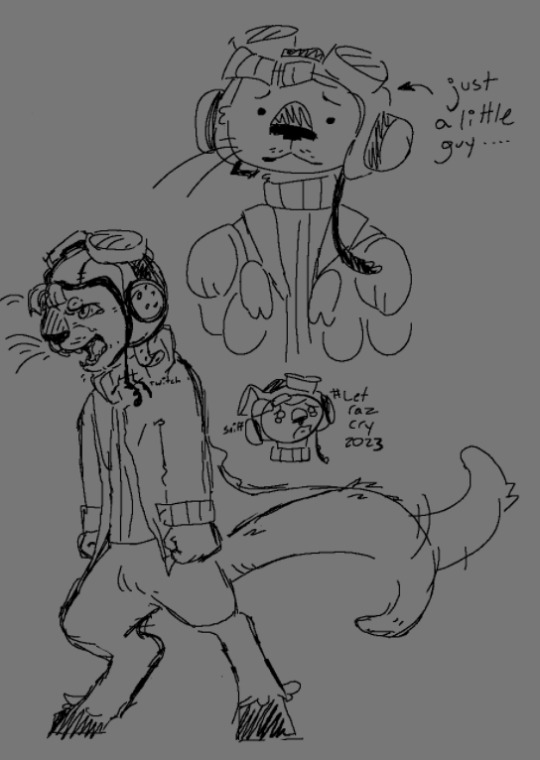
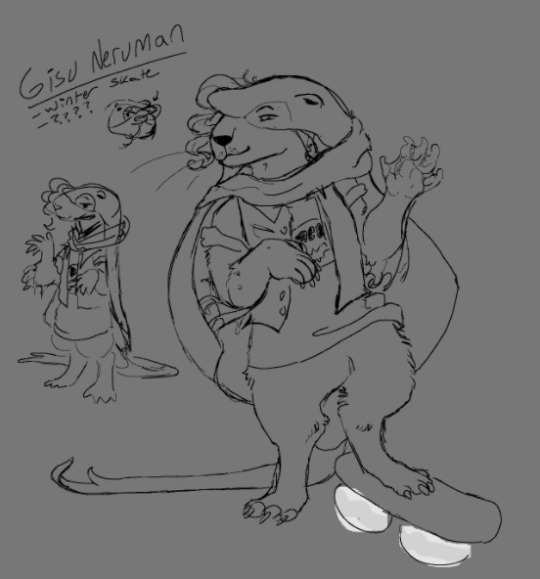
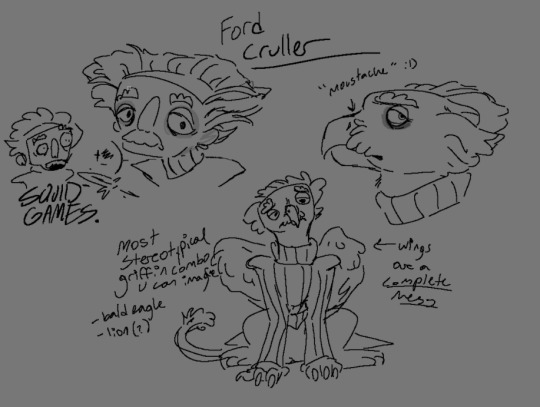
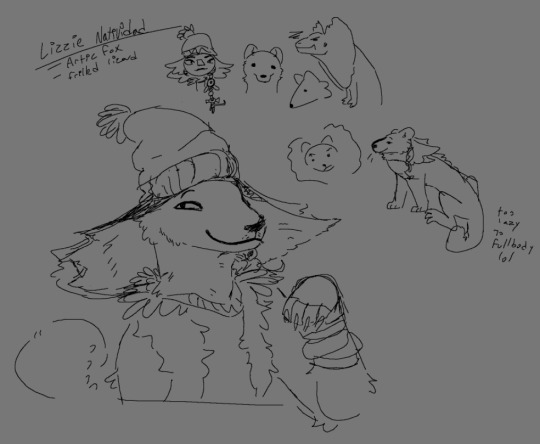
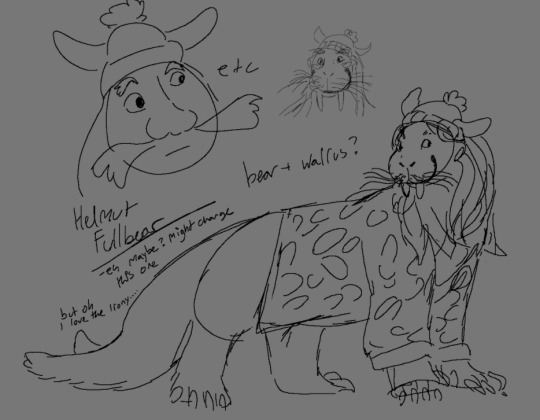
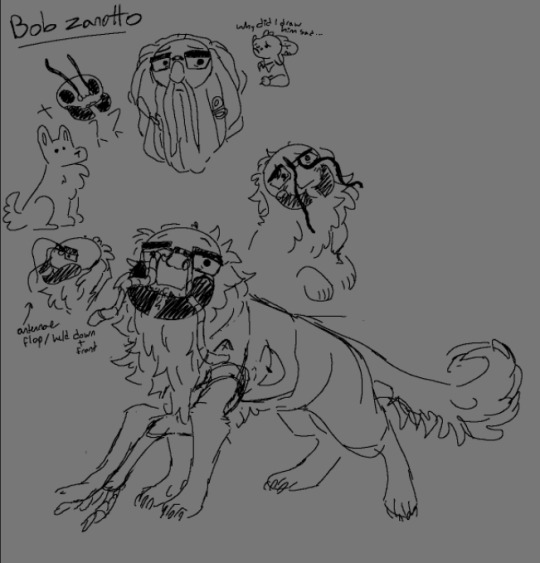
more.....
#razputin aquato#lizzie natividad#gisu nerumen#ford cruller#bob zanotto#helmut fullbear#psychonauts 2#psychonauts#bug#just in case for bob#my art#yea ok now i can say stuff hehe#for gisu the part where u can see her eyes is in fact a transparent (ish) part of that skate irl so. she can see thru that#tho she is also the skate#it is her#not much to say on ford i think i hit it nail in the head#lizzie and norma will both be some type of fox +other things ftr i just havent drawn norma up yet lol#i am. on the fence abt that helmut design#i like the idea#but i dont think it looks enough like him yk#the irony of 2 good swimmers (and cold tolerant) being mashed up to make te character that was sunk and frozen does not escape me#and bob :]#idk i could talk about like how much i think i didnt need to change much here fr him w the preestablised ant dog zanotto thing i think#it fits him quite well to me#anyways yea#let raz cry 2023 baby#more sad raz on the way probably#q
230 notes
·
View notes
Text
lime vs tiramisu that one post thats like "Why can't Mochi and I share a room?" "You'll understand when you have a daughter."
lime, quietly under his breath: "How am I supposed to have a daughter if you wont let me in there--"
#gets whacked immedately#tiramisu knows.............#when they got to around 13/14 she started banning sleepovers#at the time lime and mochi were like (thats so dumb. why??)#but grown up lime gets it now#(ah. she knew huh...)#13 year old lime: this is so dumb. just because we have sleepovers that means were gonna like each other?? boys and girls cant be friends??#and then falls in love with her after she falls asleep on him on e#lime:....(so she hit the nail on the head...)#mochi: noooo hes not like that...#lime sweating: ........
61 notes
·
View notes
Text
the scene i find most relatable in all of the witcher saga is ciri in the korath desert, and idk what that says about me, but… probably nothing good 😅🙃
#i am emotionally connected to these events and her characterization during this chapter in ways i can’t even understand#this chapter is also probably singlehandedly why i think the witcher makes a brilliant YA series even if it’s not originally marketed as YA#ch 6 toc is excruciating but it is so cathartic and relieving to read :’(#because every young person has felt betrayed abandoned powerless and lost#ciri’s entire feeling beginning here which she recounts in ttos ch 1 to vysogota#that she felt so betrayed by the morals and goodness which geralt instilled in her because it was useless and did not save her#the whole series is about: if goodness does not save then what is the point of being good#and then when she goes insane from fire magic and shouts she’s going to make cabbages grow in the desert#this entire chapter is just what teenhood-young adulthood is like lmao#oscillating rapidly between ‘i am going to die here i am utterly powerless’ and ‘I CAN DO ANYTHING’#and her revenge fantasy exploding into killing everyone she loves because paranoia says they will also one day betray her#idk what else to say. really hit the nail on the head with ciri’s character. i understand now how she is the evil and geralt is the good#the elbow high diaries
24 notes
·
View notes
Text

hard times, ethel cain
#this song makes me so guggguhh/pos#i will be posting multiple lyrics from this song because i mean she really hit my trauma nail on the head#ethel cain#hard times#song lyrics#lyrics#mental illness#mentally ill#toxic parents#childhood abuse#child abuse#childhood neglect#child neglect#childhood trauma#trauma#csa survivor#childhood sa
153 notes
·
View notes
Text

Sylvie softened, placing a comforting hand on his arm. “Hey, he’s obviously decided it’s not a deal-breaker. To be fair, I’m not sure many things would be. I wasn’t kidding about the head-over-heels part. Or the simping.”
Loch tried to smile, but it fell apart immediately. She was right, though that only made it worse.
“Asher needs time, but you need to actually talk about it, Loch. He can’t come to terms with it if you both keep pretending the problem doesn’t exist. Otherwise, you’ll have this same dance whenever someone around you gets knocked up.”
“I know,” he said in a small voice. “I’m just... I need time, too. To think.”
“Then have that conversation. You don’t have to tell him what he wants to hear, you know? Just be honest. Telling him you need time is still better than ignoring the elephant in the room.”
“I-I... I can’t.”
Sylvie sighed with obvious disappointment, shaking her head as she withdrew her hand. “Well. Good luck then.”
|<Previous | Beginning | Next>|
#ts3#karaish legacy#Loch Karaish#Sylvie Curtis#yeee#I think Sylvie is being too pushy overall lmao but I think her last point stands#even a 'I'm not ready to have this conversation rn and may never be' would be better than them both ignoring it entirely#and she kinda hit the nail on the head#with the 'tell him what he wants to hear' part
41 notes
·
View notes
Note
tbh you are so real for talking about the misogyny targeted to mei & other women in the lmk fandom. in general its like people only value mei as: a: the wingman to some basic mlm ship or b: macaque 2.0. its honestly crazy how so many male side characters overshadow her in the fanbase despite not even having a FRACTION of her screen time. idk chat i feel like the reason people dont care about mei but care about some random male side/background character is less because they're inherently more likeable but because some of you view women as inherently less likable. and everyone is always like "mei is so girlboss pussy cunt slay shes the only reason theyre still alive because she keeps them safe from their silly boy shennanigans shes their ultimate wingman shes so badass shes their lesbian best friend i totally paid attention to her when i watched this show LOL" and even ignoring the obvious misogyny here (ie. how people reduce her to being the male characters babysitter) its like... okay... i know mei is cool & badass already... could you name literally ANY other character trait she has. like people just value her as being "the braincell" who can get red son and mk together or something stupid and its like are we having fun still is this still fun. literally every day i go into the mei tag its like "look at mei shes red sons wifey and shes vaguely in the background of this drawing of red son and mk staring into each others eyes #trafficlighttrio am i right oh look shes macaques niece now this post is about ao lie why is it in the mei tag"
and thats literally JUST talking about mei and it doesnt even begin to cover the other female characters. chang'e constantly gets reduced to being red sons aunt/mom/big sister despite them like. not having any actual interactions in the show. lady bone demon constantly gets overshadowed by her minion who has like 2 seconds of screen time, or she gets made into a cartoonishly abusive madwoman who people call lady bitch demon. just in general people act like shes a horrible person for like. being a villain. liks yeah the trying to destroy everything was bad but also she was an antagonist and thats what antagonists do LOL. spider queen gets completely ignored. princess iron fan gets made into a cartoonishly abusive mother so that way red son can have a poor angsty backstory and some male character (usually nezha, macaque, swk) can take care of him.
(also theres just a great deal of ethnocentrism in the lmk fanbase? like im white so take what İ say here with a grain of salt but so many people will misconstrue aspects of chinese culture for their own personal hcs. people will say male characters are transfem or nonbinary while completely ignoring the time period/culture their from where thats the norm. like yippee youve implied that an east asian man is feminine/emasculine because he has long hair. how do you not see the negative connotations with this. people also turn pif (& lbd to an extent) into a dragon lady which obviously has negative racial connotations lol.)
anyway this is where my unhinged rambling ends have a good day have a good night İ had more to say here but İ reached the text limit. İ dont see a lot of people talk about the misogyny thats prevalent in the lmk fanbase so İm glad youre pointing it out lol.
Yeah, I totally hear you. The lmk fandom has plenty of issues with misogyny and, like you said, ethnocentrism. It's definitely something worth having a discussion about, along with these issues in fandom as a whole.
#you seriously hit the nail on the head anon#(feel free to rant more! I appreciated reading yer thoughts)#tbh I think it's the purity culture like#If LBD and SQ were men. They'd be so popular it's not even funny#But because they're women. And women can't be flawed#(or their flaws are harder to justify- unlike a male character like Wukong. So they're a ''bitch'')#But don't worry! There's one girl character we can girlbossify and ignore all of those pesky flaws and characteristics!!!#I'm so sorry Mei#You're not a support character for spicynoodles to me#you're literally so insane about MK it's not even funny#she's going to become my fav character out of spite on god#when she was like ''what's the point of having power if you won't use it?''#and azure was like ''i did not sacrifice everything to be an idle deity''#And 1x03 was about her using her family sword (her power) to protect her house#And Azure used his sword (his power) to protect the world#And when Mei modeled her sword after Azure's (and now he's dead)#and when- *gets shot*#also Mei doesn't even have the fucking braincell#None of them have the braincell#They're all dummies. They're all scrambling around doing their god damn best#A main theme is the fact that no one knows what they're doing. Like#idk#lmk#lego monkie kid#torment nexus#asks#anon#lmk Mei
15 notes
·
View notes
Text
*Tyler and Enid catching up
Tyler, as soon as he arrives: So we're building a little haunted castle for our daughter.
Enid: oh okay, that sounds adorable but spooky, why do you look so spooked though?
Tyler: I am petrified to build it with Wednesday.
Tyler: She built a mini guillotine when she was 10, and now she thinks that she knows everything about construction.
Tyler: Well, she DOESN'T. *chugs his beer
Tyler: Every home improvement project that we've done has been a near-death experience.
Tyler: If an accident does happen, I hope she kills me.
Enid: I wouldn't take it that far-
Tyler: Because I don't think I would be a very inspiring disabled person.
Enid: *pats his back.
#tynid#wyler#tyler galpin#wednesday addams#enid sinclair#incorrect quotes#wednesday series#Tyler needs at least a once a week bestie talk with Enid#as much as Wednesday need her as well#just imagine Wednesday nail gunning the wall and Tyler is on the other side with his head almost getting hit#ooh i sure know she likes nail guns *insert Wednesday's line about nail gunning Ajax's heart#and Ajax is their unofficial yet official bartender
50 notes
·
View notes
Text
i NEED to post about yellowjackets and I need to be understood and I need mutuals so let me talk about it
you know what character I think is underappreciated? (at least from what I've seen so far, I've been in the fandom for like a day)
Laura Lee.
I have to preface this by saying I'm not a fan of organized religion and I do think it is flawed, but I also am not a fan of flat one-dimensional characterization. a lot of devout christian characters in media are portrayed as like, just that. just christian. just devout. but Laura Lee is a person! she's a real teenage girl! she dances with everyone, she sings along to Salt-n-Peppa, we don't get a scene where she's like "oh I know them, i burned their CD at one of our gatherings recently" or whatever, she can just enjoy them! she doesn't turn her nose up at Nat who is like, the picture of what christians regularly regard as a sinner. she is able to be compassionate and kind and she has a purpose in this series. i think that's really great.
idk why that stuck out so much to me. i guess I can't think at the top of my head about devout christian characters in media who are allowed to be like, people. and I have a lot of criticisms of Christianity, hey, I was technically raised orthodox christian and I can't say it's given me much except for chronic anxiety but. I think it's not a hot take to say that christians are three-dimensional human beings too, basically
#i was so sad about her death honestly#like i knew it was gonna happen#shawty was not gonna get out of that plane alive#but i was still like noooo :(#in my head she is still alive#i am flying her out to moscow and we are hitting up cool orthodox churches#i bought communion wine by the bottle and we're drinking it and doing esch other's nails#i tell her about my boyfriend and she kind of implies Im going to hell for being gay#but in like a sweet way!#i forgive her she's my little devout ferret#yellowjackets laura lee#laura lee yellowjackets#laura lee#yellowjackets#yellowjackets season 1#yellowjackets season 2#yellowjackets spoilers#yellowjackets showtime
75 notes
·
View notes
Note
Nope, my theory is that Rhys doesn’t actually like Feyre. He likes the power that comes with her. If he actually liked her, ACOSF would not have been the same. He would have told her about the pregnancy. He would have taught her how to rule the court (rather than having half his court see her as his plaything and other half see her appropriate their culture in a way that just wrong). He would have given her more agency, more opportunities, traveled with her, have an actual relationship.
SJM girlies can scream feminism all they want at these comments, but the truth is that getting pregnant at 21 with no house and no freedom is just another trap that lord Rhysie set up for her. This isn’t the debate of ‘girls can choose war or they can choose motherhood. You aren’t a feminist if you think motherhood isn’t for Feyre’. The problem isn’t motherhood, but the fact that Feyre’s abusive husband trapped her in a marriage through manupilation and she is stuck there now with a child who might face similar abuse, and there’s no way out since she has no friends or family or support for her so called loyal court.
This is the horror story of all the girls who were groomed at a young age by some sick older man, and a common story in every country where patriarchy is still strong (take it from someone who was born and raised in such a country).
If Rhysie wasn’t a bad boy with dark hair, the same fans would tell this girl to ✨run✨
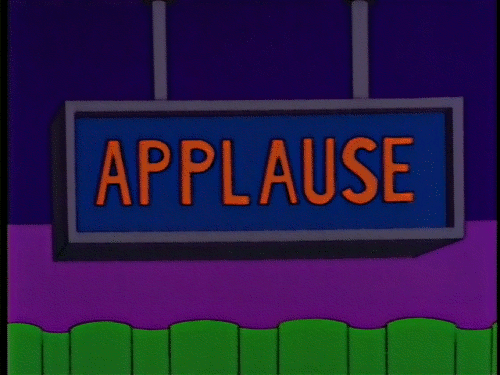
#you hit the nail on the head anon#I have always wanted to be a mother and absolutely love kids#but 21 year old me#she would have hated it#and Feyre who is only just starting her life after so much hardship#like can’t she just take some time for herself#anon asks
116 notes
·
View notes
Text
funny how dr. julia serrano, the person who popularized the term transmisogyny, finds the terms tme and tma to be reductive and generalizing, yet there is so much discourse about which trans people are and aren't affected by it (and by her explanation of it, all trans people are, just in different ways). and in her own writing says that perhaps transmascs would have a word for their own experiences with it, in the different forms it takes. she talks about this a little bit more in depth in this episode of it could happen here, more eloquently than i could. worth a listen.
8 notes
·
View notes
Text
Yesterday I read Earthian for the first time in years. Forever and always, I think it'll always sit in top spot for my overall favorite BL manga. It hit different than it used to, but I felt as though I understood it in a deeper way than I did on any prior read. Truly it is a beautiful manga, emotionally heavy, but hopeful and full of passion.

#yun kouga i owe you my fucking life#she really sat down and asked the question “what does it mean to love?” and then produced the most fire manga on earth#for a mangaka who claimed in the notes to not know much about homosexual love she sure managed to hit the nail on the head with this one.#earthian#manga#i started a rewatch of the OVAs as well but im still in the middle of that#those arent AS good as the manga but they have supreme vibes visually and with the sound design#even if its not as deep as the manga and some stuff is changed i still greatly enjoy them as well.
4 notes
·
View notes
Photo



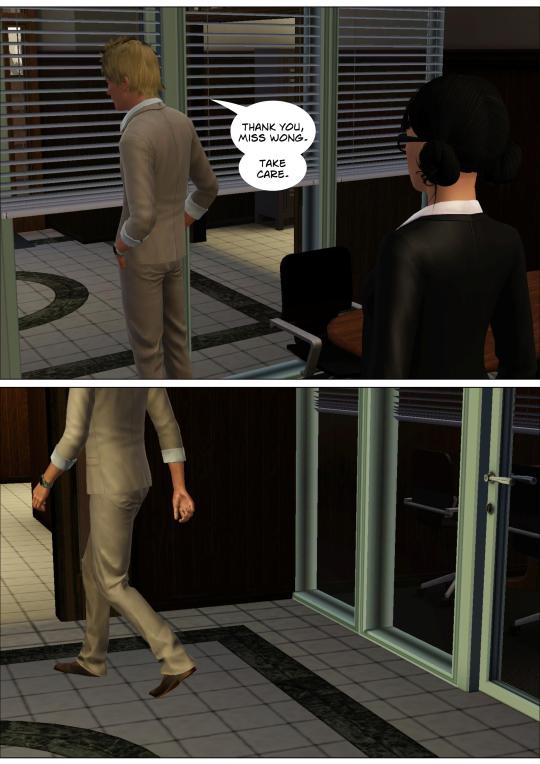
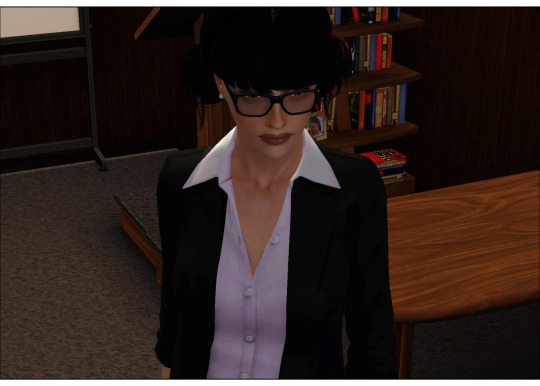
To be continued
#ts3#sims 3#sims 3 story#sims stories#tteot story#sims 3 simblr#anh wong#laurie golzine#ah anh... you're hitting the nail on the head#lau had someone... he just pushed him away#okay this is the first personal conversation they ever had#anh is starting to see a different layer#(she just doesn't know yet that the guy's a fucking onion)#laurie arc
30 notes
·
View notes
Note
△- Nela, if you had a chance to make it so you weren't the one chosen and kidnapped by Areelu and later made into the Kc, but someone else was taken in your place and had to live through that, would you take that chance to live a normal life, or would you leave it as it is and know that whatever happens, you could have avoided it or another person could have done it better?
[sorry if thats long or confusing. i know shes all about duty but im curious how she would talk about her decision]
And you hit exactly where it hurts!
This is a 10/10. This is the One Single Question that tortures her the most AND the single thing she is most scared to admit, but probably not from the angle you expect!
The thing is: Nela clings to duty as a way to stay afloat mentally. She grows into the role, but Duty isn't one of her key values. She just needs something to keep herself from collapsing into a non-functional mess and the role of Commander gives her a perfect method to achieve that.
It starts as a coping mechanism, in short. A role she clads herself into as an armor. And if someone were to discover the truth and asks her outright, she would probably give the answer that's expected of her. For the longest time, she is a huge liar about anything concerning her own mental state and her feelings about her lost life.
Now, the Actual Answer is much more complicated and depends a lot of when you ask it. She has a harder time with it the further along we go.
In early game, she isn't really that ashamed to admit to herself she wants to be back home. World and whoever has to take her place be damned. She would take that chance any day. Good-natured or not, she is young and this is one of those moments where that's obvious. She is too blinded by pain to think in others at that point.
What changes her perspective isn't so much the fact another anonymous and faceless person would suffer in exchange, but her relationship with the world around her.
As in, the actual problem comes when she genuinely starts caring for the people and the life she's building during the game. Because, on one part and knowing everything, she would still choose to remain in her simple life. She wouldn't, however, choose to return to it.
She cares for these people and this war now, but just not enough to give up on what she has lost. Which now makes her feel guilty on both accounts! She is betraying (in her head) her family by starting to move on. She is also betraying her community in the present because she still yearns to go back even as she builds a life with them.
And the more responsible she becomes and the more she grows into the role of Commander, the more that aspect haunts her too. Would the one to take her place be capable of leading it to success? Would they still protect the people she cares about?
Both things (missing her past and enjoying her present) don't have to be at odds, yet they are for the longest time. This question simply exemplifies that particular struggle way too well.
#oc: nela damasio#ask meme#thank you so much!#You truly hit the nail in the head with this i'm impressed#One of the reasons Samel helps is because she feels comfortable enough to admit this to him#she can't hurt him by admitting it
4 notes
·
View notes